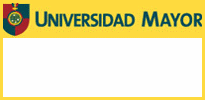United Kingdom: United Kingdom Primary Education
2011/08/28
Primary and Secondary (K-12) Education
More than 90% of students in the UK attend publicly-funded state schools. Approximately 8.5 million children attend one of the 30,000 schools in England and Wales; in Scotland, 830,000 children attend about 5,000 schools, including pre-schools and other special education schools; and Northern Ireland sends 350,000 children to 1,300 state schools. Primary schools usually include both girls and boys as pupils. Secondary schools may be either single-sex or co-educational.
Education departments in England, Scotland and Wales fund schools through a Local Education Authority (or Education Authority in Scotland). In Northern Ireland, schools are largely financed from public funds through five Education and Library Boards.
National Curriculum in England, Wales and Northern Ireland
By law, all children in England and Wales between ages 5 and 16 must receive a full-time education, while in Northern Ireland, children must begin at age 4. For children under age 5, publicly-funded nurseries and pre-schools are available for a limited number of hours each week. After the age of 16, students can attend sixth form colleges or other further education institutions. Both options offer general education courses in addition to more specific vocational or applied subjects.
The UK introduced a National Curriculum in 1992 and state schools are required to adhere to it until students reach age 16. The Education and Skills Act of 2008 raised the compulsory age to 18, effective in 2013 for 17 year-olds and in 2015 for 18 year-olds. The government is including a provision in its Education Bill that will increase the participation age to 18 so that school leavers have the option of staying in school or move onto further training (Independent schools are not obliged to adhere to the National Curriculum).
School learning is split into 4 key stages relating to the curriculum. Pupils progress through the stages as they go through the school years.
National curriculum core subjects – 5 to 11 year olds (Key stages 1 and 2):
English, Maths, Science, Design and technology, Information and Communication Technology (ICT), History, Geography, Art and design, Music, Physical education
Schools also have to teach religious education and are encouraged to prove personal, social and health education (PSHE) and citizenship, and at least one modern foreign language.
National curriculum core subjects – 11 to 14year olds (Key stage 3):
English, maths, Science, Design and technology, Information and Communication Technology (ICT), History, Geography, Modern foreign languages, Art and design, Music, Citizenship, Physical education.
Schools also have to provide: Careers education and guidance (during Year 9), Sex and Relationship Education (SRE), Religious education.
Throughout key stages 1-3 pupils are routinely tested in Standard Assessment Tests (SATs) but these are being phased out by the Government.
Key stage 4 – GCSE:
At GCSE level, students have to take English, maths, science, IT, citizenship and physical education.
The GCSE is a single-subject examination set and marked by independent examination boards. Students usually take up to ten (there is no upper or lower limit) GCSE examinations in different subjects, including mathematics and English language.
The Government is currently reviewing the national curriculum, exploring how to slim it down. The revised curriculum is expected to be taught in schools from September 2013.
After taking GCSEs, students may leave secondary schooling; alternatively, they may choose to continue their education at vocational or technical colleges, or they may take a higher level of secondary school examinations known as AS-Levels after an additional year of study. Following two years of study, students may take A-Level (short for Advanced Level) examinations, which are required for university entrance in the UK.
Scotland
Scotland has its own qualification framework that is separate from that in England, Wales and Northern Ireland. After seven years of primary education and four years of compulsory secondary education, students aged 15 to 16 may take the Scottish Certificate of Education (SCE). The Scottish Certificate of Education is recognized throughout the UK as the equivalent to GCE A-levels and is usually the entry qualification for university.
For more information about Scotland’s education system, visit Learning and Teaching in Scotland or EducationUK Scotland for information about higher education.
Grades and Transcripts
The American concept of a school transcript is unfamiliar in the UK. Schools in the UK do not generally rank pupils within their year; currently, the principal standards are the GCSE, SCE and AS and A-Level examination results.
There is no official method of equating British and American primary and secondary educational qualifications. The educational systems are entirely different and attempts to compare them must be done on a strictly provisional basis.
For more information on English examinations, please visit the Assessment and Qualifications Alliance, which is the largest of the three English examination bodies. For information on Northern Ireland’s examination policy, please visit the Council on Curriculum, Examinations and Assessment, or for more about Scotland’s grading procedures, you can review the Scottish Qualifications Authority’s website.
Post-secondary and Higher Education
Approximately 1.8 million students are currently enrolled in the UK higher education system; about one third of young people go on to higher education at age 18 (with almost 50% of students in Scotland), and an increasing number of "mature" students are studying either full-time or part-time for university degrees.
Undergraduate degrees take three years to complete in England, Wales and Northern Ireland, while at Scottish universities they last four years. At the graduate level, a master's degree is normally earned in a single year, a research master's degree takes two years and a doctoral degree is often completed in three years.
Professional courses, such as medicine, veterinary medicine, law and teaching, usually are undertaken as five-year undergraduate degrees.
- Related Articles
-
United Kingdom: Making professional road transport truly professional
2011/11/26 Making professional road transport truly professional How can road transport become more professional within the UK? Put simply, it is the operators – whether passenger or freight – who have the means to bring about change for the better. However, to do this they need support. This support must come from all levels of government, licensing and enforcement bodies, and support services. -
United Kingdom Intelligent transport
2011/11/26 A good sign -
United Kingdom - Telecoms, IP Networks, Digital Media
2011/10/07 United Kingdom - Telecoms, IP Networks, Digital Media FttH receives boost from Virgin Media United Kingdom- Telecoms, IP Networks and Digital Media, provides a comprehensive overview of the trends and developments in the telecommunications and digital media sectors in this key European market, including regulator data to the first quarter of 2011 and operator data to June 2011. -
United Kingdom Entry Requirements
2011/08/28 Each level of education in the UK has varying requirements which must be satisfied in order to gain entry at that level - learn more about the education entry requirements for the UK. Entry Requirements to Study in the UK -
United Kingdom Higher Education System
2011/08/28 The UK has a vast variety of higher education opportunities to offer students with over 100 universities offering various degree programs for students from the UK and around the world. In the UK about one-third of all students go on to some form of higher education and this number is well over 50% for students from Scotland. This makes competition for places very fierce and so it is advised to apply early for courses.
-
- United Kingdom News
-
- AFGHANISTAN: UNWTO: International tourism – strongest half-year results since 2010
- CHINA: China confident to get new UK nuclear power plant approval after Hinkley
- ALBANIA: US LNG exports make European market more competitive
- IRAN: UK exports to Iran increase by 200
- EUROPEAN UNION: UK seeks to 'align' with EU on data protection rules
- UNITED KINGDOM: UK Household Finance Outlook Remains Downbeat In August
- Trending Articles
-
- CHINA: China Invites 5 Countries As Guests For BRICS Summit
- SIERRA LEONE: Where’s best to invest in Sierra Leone?
- EGYPT: Dollar exchange rate maintains stability at Egypt's banks
- NIGERIA: Africa's Richest Man Sets Sights on Launching Nigeria University
- INDIA: Uztrade JSC creates Trading House in Delhi
- BOTSWANA: Africa: U.S. State Department To Get Experienced Diplomat in Key Africa Post











